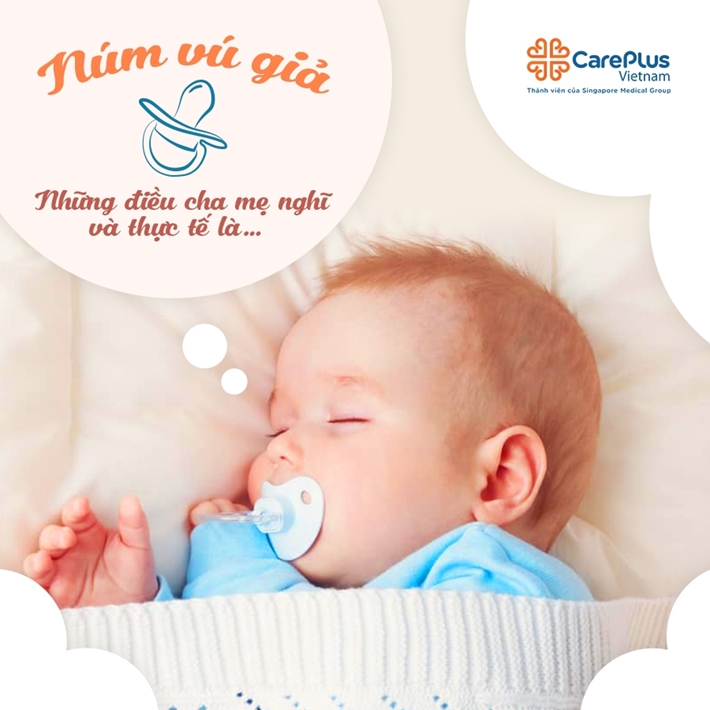Dancer knob - Myth and Reality
It is found that babies are able to suck their thumb before birth so parents often see that reflex and claim that they’re hungry. That’s why parents choose pacifiers instead. However, whether pacifiers are necessary for your baby or not?

11/13/2020 10:26:41 AM
Parents think that:
- The pacifier will comfort the baby, making them less fussy because they are happy to latch on to something.
- It satisfies the baby's sucking reflex. Infants need to suck naturally. That is why the baby still desires even when they’re full.
- Pacifiers help babies soothe themselves because it helps to control their emotions.
- It helps babies fall asleep faster because they will make them feel sleepy when they are latched on.
- The pacifier has a temporary distraction effect. While your baby is going through things that stimulate the baby such as taking blood, shots or procedures, a pacifier can be helpful to reassure the baby.
- Pacifiers will ease discomfort during flights. Children cannot do these actions to reduce tinnitus when changing air pressure. A pacifier can be helpful in this case.
- How a pacifier works is inexplicable, but if putting a pacifier while the baby is sleeping, it may reduce the risk of sudden infant death syndrome (SIDS).
How do pacifiers cause problems for your baby?
- Early use can interfere with breastfeeding. Studies show that using pacifiers leads to getting rid of breastfeeding in a few months.
- Your baby will depend on a pacifier. For example, you have to deal with midnight cries when they don’t have pacifiers. Even they have to suck on a pacifier when going out.
- Using pacifiers makes the baby at risk of an ear infection because the immune system of infants up to 6 months is still incomplete.
- Oral problems. Long-term use of a pacifier causes the teeth to become skewed and tilted, especially during the teething stage.
If a pacifier is on your plan, keep in mind these tips for keeping your baby safe:
- Wait until your baby is fully breastfed. The American Academy of Pediatrics recommends waiting for a pacifier until your baby is 3 to 4 weeks old and you've settled into effective breastfeeding habits.
- Not using pacifiers as the first choice to soothe your baby. Sometimes parents should change the position of holding a baby or gently rocking can soothe a crying baby. And only give your baby a pacifier after the baby is full.
- Not use the one that contains Bisphenol-A (BPA). If they like the chosen, you should prepare more than one for them.
- Use a suitable size following the age to ensure it fits your baby's mouth.
- Change pacifiers often, pay attention to the signs of damage.
- Do not fix it with a pacifier strap, it can get caught in the baby's neck.
- Before 6 months, the baby's immune system is very poor, you should regularly boil and wash with soap.
- Let your baby decide whether to use a pacifier or not. Do not force them when they don’t like it. If the pacifier falls out of the mouth while sleeping, let it be.
- Do not put sugar or sweeteners on the pacifier. It will be harmful to the child's teeth, and affect the baby's taste in the future.
When to wean pacifiers?
- It’s not recommended to use a pacifier for weaning. So you can gently tell your baby that the pacifier fairy took it away instead.
- Weaning pacifiers at the right time. Slowly stop that habit during bedtime. You should not wean or pacifier when there are changes in life.
- Be consistent. Parents are not the only ones who spend time with the babies during weaning so make sure all caregivers follow the same plan.
- As getting older, there are no benefits from pacifiers so appreciate your child to get rid of it. If it’s too difficult, talk to the doctor or dentist for help.